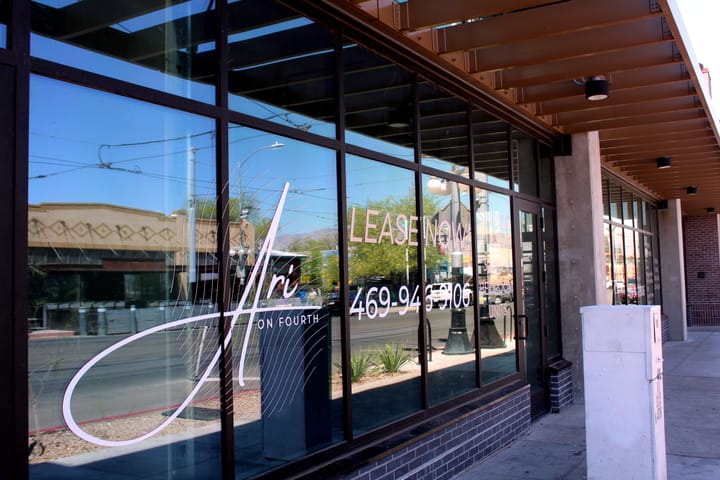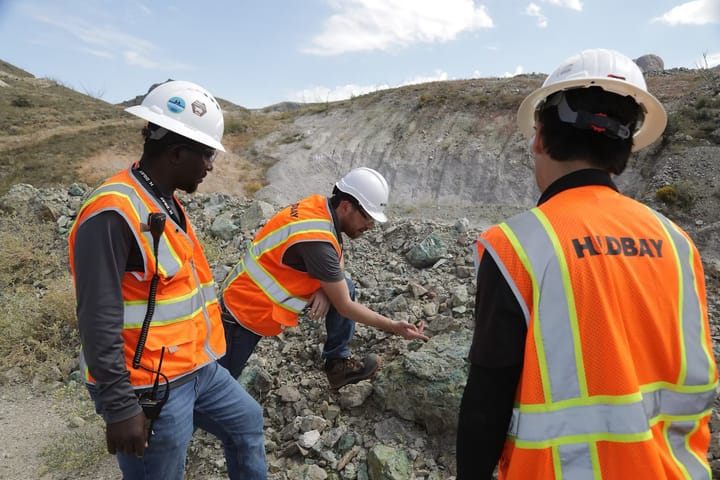Arizona activists sound alarm as Trump dismantles environmental protections
Local environmental activists are mobilizing against President Trump’s executive orders rolling back climate policies, fearing lost funding and setbacks for community sustainability efforts.

Local environmental activists are bracing for the impact of President Donald Trump’s executive orders rolling back protections and freezing what the new administration calls an excessive use of federal funds.
The federal government’s environmental justice efforts began in 1994 under President Bill Clinton and were expanded under President Joe Biden to establish the Justice 40 Initiative, which is aimed at ensuring that marginalized or disadvantaged communities receive at least 40% of federal benefits related to the environment, housing, economic development and other areas.
But one of Trump’s first actions after taking office was issuing a sweeping order that rescinded 68 executive orders and 11 presidential memoranda from the Biden administration, including many policies related to the environment and climate change. Among these was the dismantling of environmental justice policies and initiatives, which has raised concern among experts and local groups.
The Associated Press reported that Ayana Elizabeth Johnson, founder of the nonprofit think tank Urban Ocean Lab says the new orders will “make the air dirtier, make people sicker, make energy more expensive and make our communities less prepared for extreme weather.”
The order is one of several actions by the new administration that chip away at environmental protections, with Trump calling Biden’s orders “climate extremism” and saying that excessive spending on environmental goals has contributed to inflation and burdened businesses.
Representatives of the Arizona Youth Climate Coalition, a statewide climate advocacy group, say they’re concerned about the potential impacts of the rescinding federal climate policy on local efforts, saying these policy shifts could lead to uncertainty regarding federal funding for local projects.
These include projects aimed at reducing emissions, promoting renewable energy, increasing the shade canopy and protecting marginalized communities from the impacts of extreme weather.
Tucson Co-Lead Ojas Sanghi said that while much of what Trump is doing is “illegal or unconstitutional,” the checks and balances of government are being tested. Increasing community awareness and engagement is critically important, Sanghi said.
“What Trump is doing signing these executive orders is really radically reshaping the government, and destroying climate action in so many ways,” Sanghi told Tucson Spotlight. “Pima County and the City of Tucson don’t know if they’re going to be getting federal funds anymore that they had won to do local climate work, and that was work that we were involved in.”
In October, the Tucson Unified School District passed a groundbreaking Climate Action Resolution that is among the most comprehensive in the nation. The plan sets targets including achieving net-zero emissions by 2040, a 50% reduction by 2030 and a commitment to 100% clean energy by 2035. The district was expecting funding from the Inflation Reduction Act, the Bipartisan Infrastructure Act and other federal sources.
“Now a lot of that is up in the air and in question, because … we don’t know if they’re going to get the money anymore, which is completely illegal,” Sanghi said. “The IRA was a critical tool to spur local climate action.”

The new executive orders also shift the way people think and talk about environmental issues, Sanghi said. Federal agencies are no longer allowed to use the words “climate change,” and resources like the Environmental Protection Agency’s “Green Tool” have been removed from its website, along with data sets related to energy and the environment.
“All of this really hurts the data aspect of working on climate (awareness,) and really hurts local decision making, and in many ways is like modern-day book banning of climate information,” Sanghi said.
On Thursday, Tucson City Councilman Kevin Dahl and public health advocates gathered in Tucson to highlight the importance of the impact of federal incentives for electric vehicles and clean energy investments in Tucson.
Dahl said the Inflation Reduction Act's EV incentives have helped lower costs for families, driven economic growth and created new jobs in the clean energy sector. He expressed concern that rolling back policies like these would undermine this progress, harming both the economy and public health.
Karen Peterson, past board chair of Tucson 2030 District and member of Physicians for Social Responsibility Arizona Chapter, said that Tucson's commitment to clean energy depends on strong federal policies that protect progress.
“The Inflation Reduction Act represents a massive economic opportunity, and just as importantly its investments are about ensuring a livable future for our communities,” she said. “Tucson has made great strides in advancing sustainability and clean transportation, and we cannot afford to let these vital investments slip away.”
Dr. Brian Drummond, chair and co-founder of Arizona Health Professionals for Climate Action, said reducing vehicle emissions leads to immediate and tangible improvements in public health.
“As a physician and EV owner, I see firsthand how reducing vehicle emissions leads to immediate and tangible improvements in public health,” Drummond said.
Federal tax credits have also enabled families to transition to electric vehicles and adopt clean home energy solutions like rooftop solar, Drummond said, as the trio asked Arizona's congressional representatives to defend the “critical investments.”
In addition to calling on elected officials to take action and protect the environment, groups like these and the Arizona Youth Climate Coalition are working to increase awareness and make sure people understand the impact of these actions.
“There is a resistance growing,” Sanghi said. “I think the first two weeks, people were just so shocked and stunned that they didn’t really know how to react. In the past few days we’ve seen a little bit more of a resistance, especially on the national level by Democrats, and I’m hoping that that resistance will trickle down and that people in our local levels will begin to find their voices and be more confident in speaking out against this … and AZYCC will be helping do that work.”
Matthew Lewis is a journalism major at the University of Arizona and Tucson Spotlight intern. Contact him at mclewis95@arizona.edu.
Tucson Spotlight is a community-based newsroom that provides paid opportunities for students and rising journalists in Southern Arizona. Please support our work with a paid subscription.




